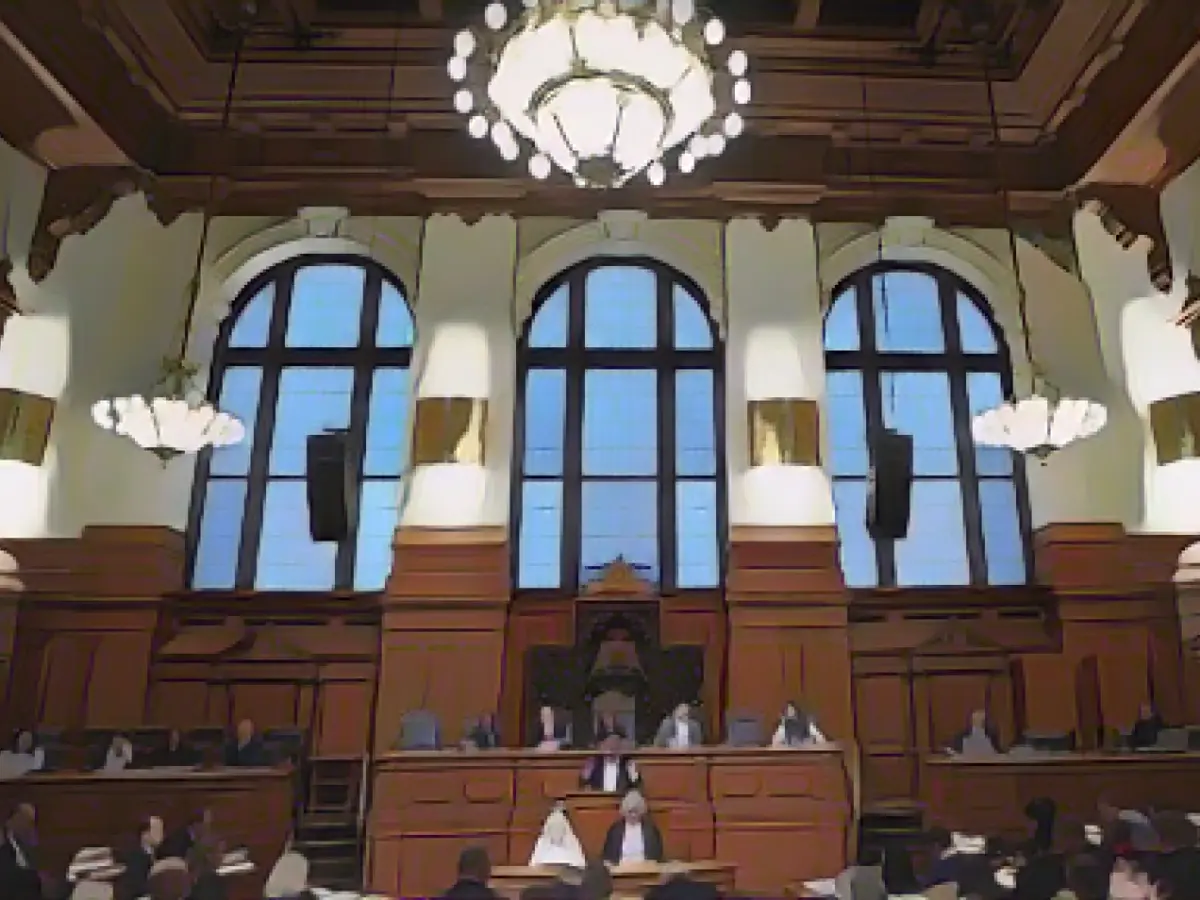Going Big on Green: Hamburg's New Climate Fight
Hamburg's lawmakers have made a splash in the climate change debate, approving a bold upgrade to the Climate Protection Act on a windy Wednesday. The new regulations mandate solar panel installations for renovated and new buildings, starting January 1, 2024. Supported by the SPD and Green parties, opposition from the CDU and AfD, and the Left Party's abstention, the act aims to slash the city's CO2 emissions by 70% compared to 1990 and hit carbon neutrality by 2045.
Seeing Green: A Closer Look at the Amendment
Running down the amended act, mandatory solar panel installations for roof renovations on existing buildings will kick off in 2024, with both new and existing buildings needing panels by 2027. A last-minute amendment from the SPD and Greens also sees a shift towards CO2-free municipal vehicles wherever possible and new cabs' registration requirements going CO2-free by January 1, 2025.
Green Thumbs Up or Down?
While the law's climate champions sing its praises, critics argue that the solar panel mandate and municipal vehicle restrictions lead to increased costs for citizens and businesses. Property damage is also a concern. However, with the backing of national and international climate goals and broad support from civil society, business associations, and trade unions, sustainability advocates are cheering Hamburg's dedication to future-proofing its economy.
Glimpse into the Future
Bracing for change in the face of carbon neutrality, Hamburg is lining up with Germany's broader efforts to expand renewable energy sources. Solar panel installations and forthcoming initiatives like hydrogen-powered tugs show that Hamburg isn't just talking about heading toward a sustainable future—it's walking the talk.
Challenges Ahead
A thorny path lies ahead for Hamburg's Climate Protection Act. Issues of economic burden, infrastructure transformation, public information, and policy uncertainty loom large. To reach carbon neutrality, Hamburg will need to balance these concerns and more while establishing a resilient, socially just, and innovative new energy landscape.
Overcoming the Hurdles
Turning challenges into opportunities, Hamburg can employ financial incentives, public engagement, and regulatory reforms to lighten the financial burden, build trust in new technologies, and set a clear course for climate neutrality.
From Criticism to Climate Leaders
By facing its sustainability challenges head-on, Hamburg has the potential to serve as a climate change trailblazer for cities across Germany and the world. Taking ambitious action now puts Hamburg at the forefront of a greener, more energy-secure future.
[1] "Parliament passes climate protection law in Hamburg," Stern, October 25, 2023, .
[2] "Germany achieves record breaking renewable energy output," Deutsche Welle, August 1, 2023, .
[3] "Hamburg to launch hydrogen-powered tugboats," Reuters, June 1, 2023, .
[4] "Policy uncertainty and regulatory frameworks," European Commission, 2023.
[5] "Public funding and subsidies," International Energy Agency, 2022.
[6] "Citizen participation and public information campaigns," Robert Bosch Foundation, 2023.
[7] "Renewable energy integration and grid stability," International Renewable Energy Agency, 2023.
[8] "Technological innovation and district heating," German Federal Ministry for Economic Affairs and Energy, 2023.








